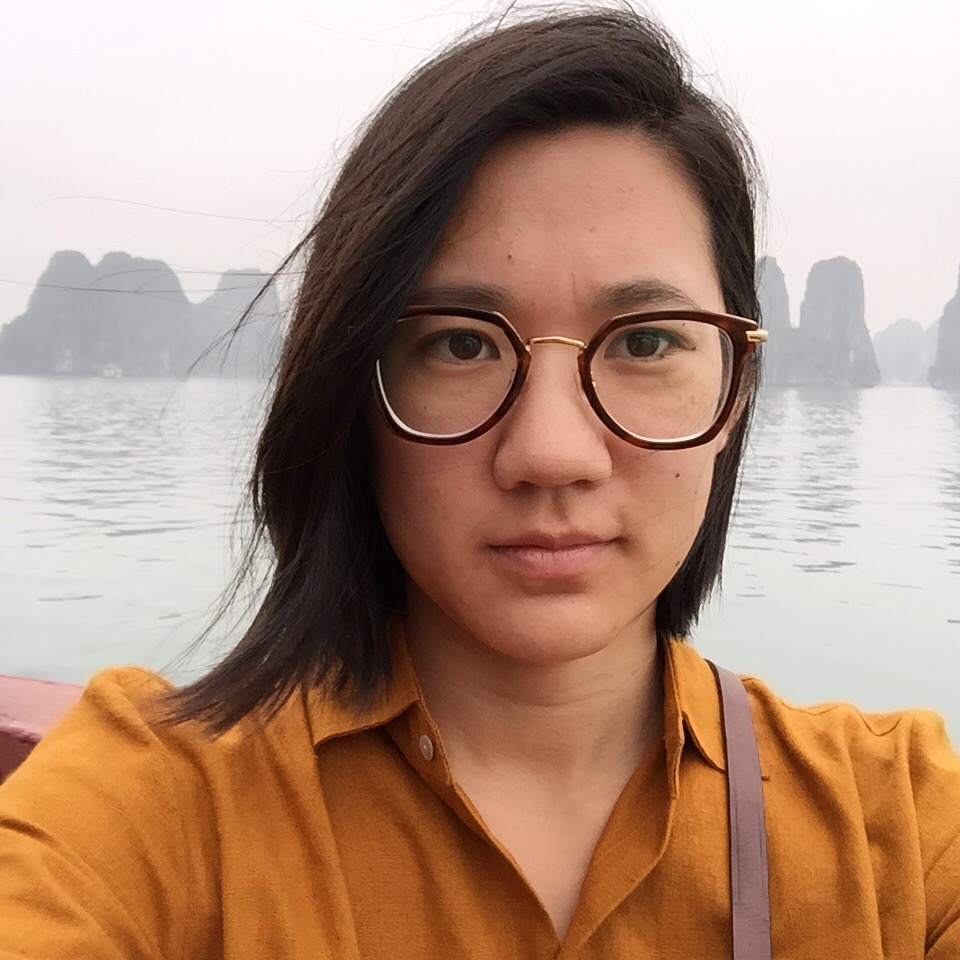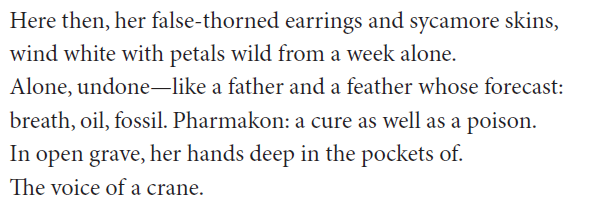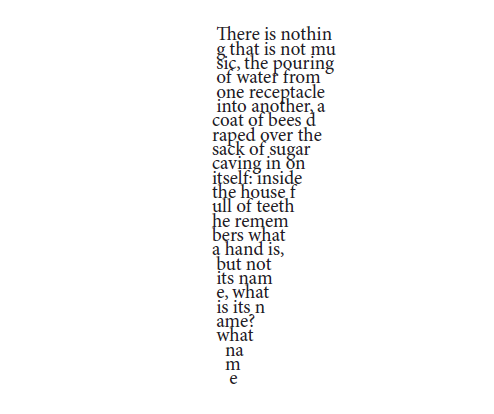Paul Bonnell reviews the Diana Khoi Nguyen’s hybrid art poetry book, Ghost Of, which was winner of the Omnidawn 2016/17 Open Poetry Book Prize selected by Terrance Hayes; and long-listed for the 2018 National Book Award for Poetry.

To what extent do war and separation and loss shadow us? How do we navigate erasure? Can we shape grief and healing with words, images, emptiness, and space? Diana Khoi Nguyen explores these questions and more in her remarkable book of poetry, Ghost Of. Through text, black and white photographic images, triptych, forms and negative space—this work at times interrogates, at times unsettles, at times heals; always, it compels. Like the “elver” that Nguyen invokes, it is a thing that swims into one’s consciousness and invites the reader to question their own losses, their “ghosts of,” their own blank, in-between spaces, and their (un)belonging and exile.
Invisibility permeates this multimedia elegy for a brother lost by suicide, even as it, itself, is a work of visibility. On one page there will be a blurred photograph, a family portrait, a staggered image made more haunting by the sharp edge of emptiness—the space left by the brother’s missing image. One can see the path of the scissors, the exposed edges of the photograph. On another page, perhaps an opposing or subsequent one, will be a poem composed of truncations and staggered lines. Words take on the shape of the missing, and in the shape of these words, in their formation and un-formation, we are invited into the most intimate of embraces and ruptures and losses.
Reading the text, image, and blank spaces, one brushes up against mutilation and yearning, and the sensation that words have both power/possibility and limitation/insufficiency. She writes:
Nguyen works with the music of language:
Yet she also works with silence, writing of echolocation, empty graves, and empty houses:
These poems come by letters, by spaces, and by broken lines. And it all feels right, as a reader and writer:
Throughout the collection, Ghost Of embraces multiple contexts. We are diasporic peoples from across the waters: we create and re-create and imagine and re-imagine our pasts and that of our antecedents, ancestors, our lost and forgotten relatives—our own fragmentation. As Dao Strom notes, diaspora shapes us and our work. Our work grows out of it, it questions canons and erasures and wars and silence. Nguyen writes, “And if you bypassed a war, a war / wouldn’t bypass you.” We are connected to and disconnected from war. We are peoples of loss and emptiness and abandonment. We are refugees. And we are from refugees. And we are of refugees. Nguyen writes, “Let me tell you a story about refugees. A mother and her dead son sit in / the back seat of his car.” Nguyen asks, “Is belonging and fulfillment possible without family? Is it possible with / family? No.”

Ghost Of moves us through the contours of grief and through historical moments and the forces of history, shaping and re-shaping. Reading the words in these 77 pages, I am moved by how this work now inhabits me with the junctures of (dis)connection and (dis)appearance. Tracing the shape of the missing, the absences, contemplating the self-exile, the work of the scissors, I feel the slice of my own personal losses—a father supposedly to the War, supposedly in/near Cambodia; a brother supposedly to an accidental overdose; an adoptive mother to stroke; a birth mother, who knows? Ghost Of is this evocative and this personal. It is not a casual or academic read but a living entity, a painful yet restorative conversation.
Nguyen moves us to and through questions. What are we? What are we from? What are we of? What are we to do? In “A Woman May Not Be a Safe Place,” Nguyen writes, “We tell ourselves and each other stories to help us understand the what and / the why.” And Nguyen is right. Tell. Read. Read Ghost Of. Experience it. Listen. See.
CONTRIBUTOR’S BIO
Paul Bonnell was born in Buôn Ma Thuột, Vietnam. He has lived in the Philippines, Malaysia, and the United States. He teaches, coaches, writes, plays music, and climbs in northern Idaho, where he lives with his family. He is interested in poetry, essays, fiction, hybrid art, the Vietnamese Diaspora, the Chăm, the Bru, mountain culture, biopolitics, and transracial/transnational adoption.






